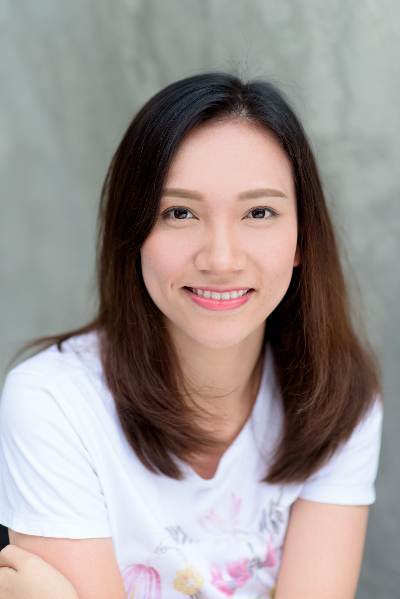“Teaching at-risk children psychology is an important part of prevention.” – Luck

How Luck Became Involved
Choosing Clinical Psychology as her major at Chiang Mai University proved to be an easy feat as her desires and skills aligned in perfect harmony. After graduating with her Bachelor’s degree, Pii Luck worked as a psychologist in a hospital and a university. When she found The Freedom Story, she immediately gravitated towards the idea of working here. The community with which The Freedom Story works brought back memories of the village in which she grew up. “I saw in my community, much like this one, many children had a problem of a lack of opportunity. I love working for this organization because children from this community remind me of the children from my village.” Luck explained how important it is for people who are wanting to make a drastic impact in a community to have a deep understanding of the challenges, the culture, the language, and thought process of the community itself. Though she is too humble to say this, her education and life experiences make her uniquely qualified to help run our Human Rights program, which involves working with people similar to her family and home village.
Luck’s Perspective on Prevention
As we approached the topic of why prevention is important, she reiterated the long term effects of The Freedom Story’s prevention work and its ability to spread through communication. “Prevention helps people in many different roles of life. We get to meet them where they are at.” Luck seems to find great beauty in the vastly different stories from each of the students and their families but she doesn’t just see them as people she can help. She sees them as people who can join alongside us. She sees their ability to reach others. She sees their dignity and their important role in the fight to end human trafficking together. She explains,
“Anyone can help prevent human trafficking if they have the knowledge. Not everyone is capable to rescue or to work in after care but everyone can be taught about ways to prevent human trafficking and become teachers themselves. This way, communities can take a bigger role and responsibility for their own people.”
Luck believes that the students at The Freedom Story can lead this charge. She proclaims that our students are the perfect people to amplify our message.
“They know their own community better than anyone else does… They will have greater impact because of their knowledge of the people and the cultural knowledge of the village. It’s very important for our children to be active leaders, because many times, they can be [messengers] from us to other people who need to be reached about trafficking.”
The Role of Psychology in Prevention
When asked, why Psychology is important to the prevention of human trafficking, she began with relationships. “It helps them have healthy relationships with their families, classmates, teachers, potentially romantic relationships, etc. It helps them feel accepted.” Luck referenced feeling accepted multiple times in regard to prevention. The social isolation piece of psychology can be a very strong motivator to go out and find belonging in other places or to be more likely to be coerced into trafficking because of the strong desire for acceptance. The United Nations also sees the importance of working to combat social exclusion, “Social exclusion prevents groups from receiving benefits and protections that are intended for all citizens. Their economic mobility is usually affected and they are excluded from mainstream activities such as education and employment.”
Luck and the Human Rights team has fought this by communicating the importance of mental health. She explained that The Freedom Story’s teaching on mental health has had great results in terms of changing mindsets. “Many parents didn’t know about mental health and depression, and we have seen their thoughts begin to change. They are starting to see the brain as another part of the body and that there are problems that the brain can have that are not someone’s fault, but they can be helped and potentially healed. There was a large stigma about discussing mental health but we are seeing that stigma decrease with every conversation.” By reducing this stigma, we can help ensure that those struggling with anxiety, depression, or other mental health issues are accepted and properly cared for, rather than shunned, thus protecting them from pathways to exploitation.
Luck is also thrilled about the results from the 3-3-5 program, which is a curriculum that was developed to help children understand their rights in terms of their own physical and sexual integrity, and is part of our Human Rights Program. She noticed that previously, villagers would not say anything to tourists who were hugging, taking pictures with or or even kissing children without their consent because they thought it was a cultural difference and didn’t want to ‘lose face.’ But Luck is seeing a change in that. She is seeing parents, and children speak up and respectfully decline. She has seen the most drastic change in the students themselves. Luck is seeing the students come to the conclusion that they’ve wanted them to come to all along. “Students have started seeing their bodies as important and their own,” she said with a smile.
Needless to say, The Freedom Story benefits greatly from Luck’s expertise, passion, and drive. However, more valuable than the benefits she brings to the organization, Luck is a woman who is a blessing to the children, families, and communities that she is influencing. She empowers the individuals she is working with, equipping them with tools, knowledge, and strategies to make a difference in their own lives and the lives around them. She invokes change, true and lasting change.
Header photo credit: Uraiwan Sitthichirang




